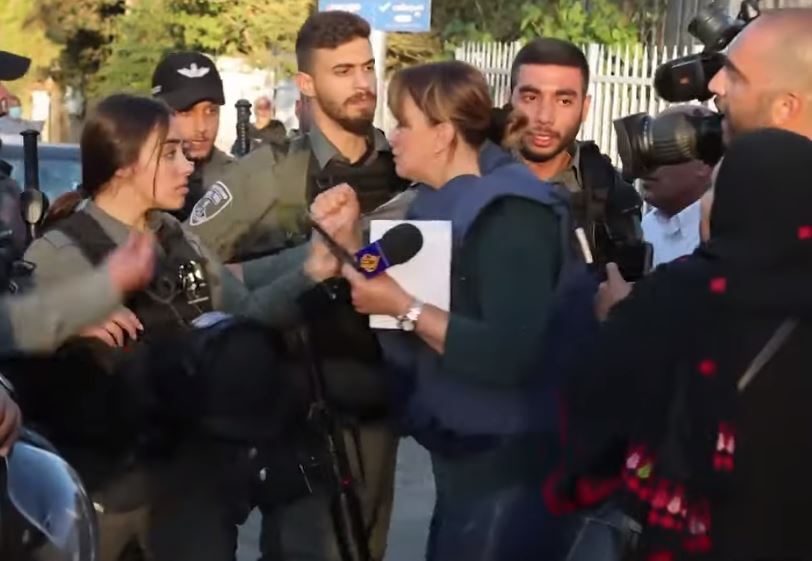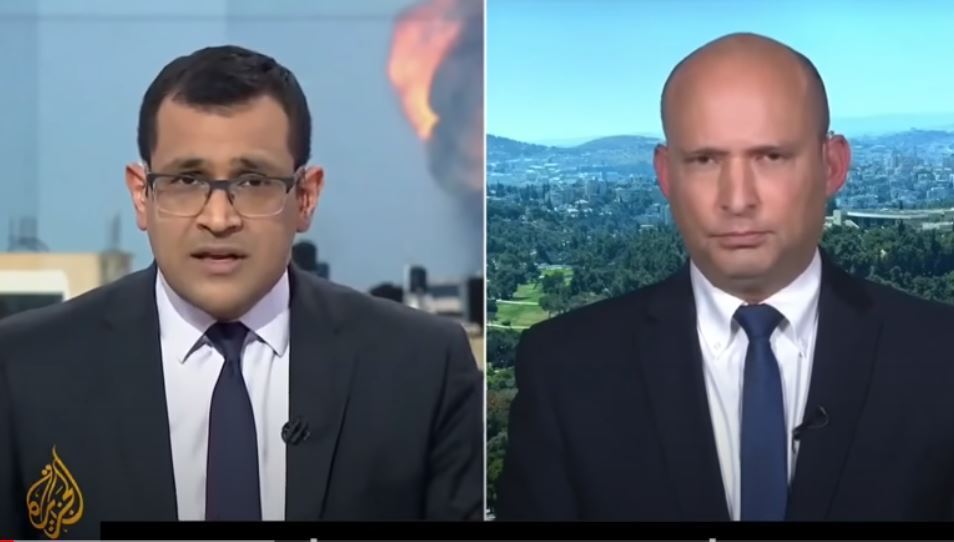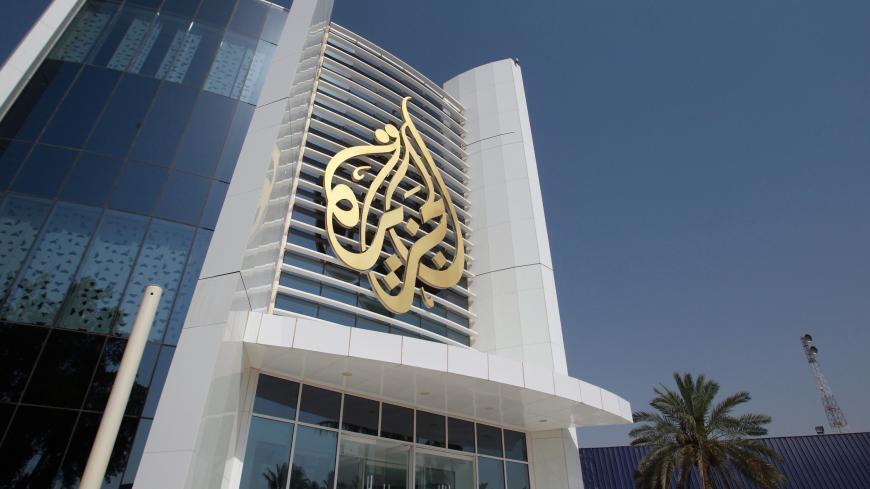Getting your Trinity Audio player ready...
The Al Jazeera Network has been making news in Israel instead of reporting on it.
The network's reporter Givara Budeiri was manhandled by Israeli police last week, while reporting on the events in the flashpoint East Jerusalem neighborhood of Sheikh Jarrah.
Her ordeal was recorded by media crews after her own cameraman's gear was broken.
4 View gallery


Al Jazeera reporter Givara Budeiri being detained by police in East Jerusalem last Saturday
(Photo: Screenshot)
Budeiri was in Sheikh Jarrah to cover the protests over the possible expulsion of Palestinian families from their homes after a right-wing Jewish group claimed ownership of them.
When she was released after police questioning, Budeiri appeared on camera with her arm in a cast and recounted her experiences. The clip was quickly disseminated all over social media.
4 View gallery


Al Jazeera reporter Givara Boudeiri in a cast after altercation with Jerusalem police last Saturday
(Photo: Screenshot)
On the same day, in a broadcast out of Qatar, Al Jazeera aired audio and images of who they claimed was Avera Mengistu, an Israeli civilian believed held by Hamas in Gaza.
"I am an Israeli soldier," the man on the recording says in broken Hebrew. The images were of bad quality and too fuzzy to validate.
Mengistu was not a member of the IDF and his mother quickly declared the voice was not that of her son.
Israeli officials branded the broadcast a "cheap trick."
Al Jazeera is run differently from other Arab networks in the Middle East. It was founded with $150 million provided by previous Qatari ruler Sheikh Hamad bin Khalifa bin Hamad.
Its headquarters are in Qatar's capital Doha, in a well-guarded compound of tiny offices.
So small are the offices, that when former Egyptian president Hosni Mubarak visited the building, he mused that the offices were the size of match boxes but as loud as a nuclear explosion.
The network quickly became not only an important voice in the region but also the only Arab language station to have interviewed Israelis.
Israelis do not have an easy time on Al Jazeera and are constantly pounded with accusations.
Even so, some have become regulars on the network's shows, among them Ofir Gendelman, the prime minister's spokesman to the Arab-language media, and IDF spokesman Avichai Adrai.
They rose to the challenge of undergoing aggressive grilling while still managing to explain the Israeli position to the network's viewers.
4 View gallery


Prime Minister-designate Naftali Bennett being interviewed on al Jazeera during the May 2021 conflict
(Photo: Screenshot)
Al Jazeera is boycotted in many Arab countries, including Jordan, Egypt, Morocco, Saudi Arabia and many Gulf states. It is however welcomed in Iran, Syria and Lebanon.
To present an Egyptian perspective, the network interviews experts residing in Europe or the United States who often voice a more extreme viewpoint.
The network is often criticized in Israel, but Israeli politicians do appear in interviews on its programs, among them Prime Minister-designate Naftali Bennett.
Their local bureau is located in the West Bank city of Ramallah and headed by Walid al-Amari, an Israeli Arab who relocated to the West Bank.
Al-Amari is an excellent and trustworthy journalist. His bosses in Qatar, however, are a different story.


